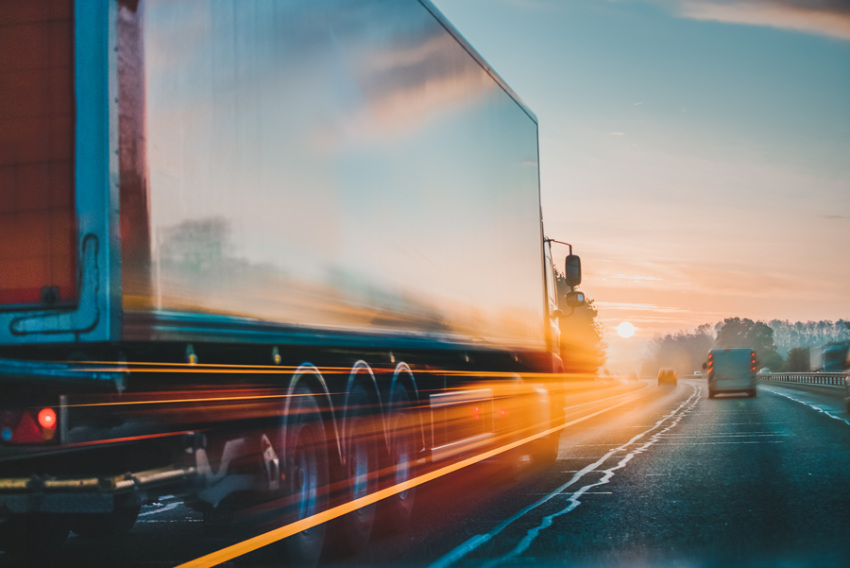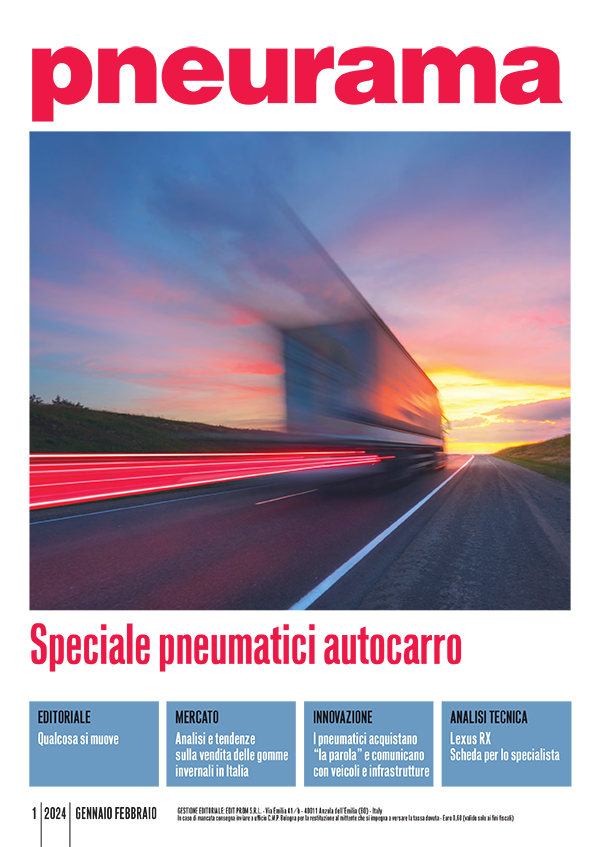The road haulage sector intends to meet the delicate challenge of defending our planet and its environment. Few people know that in the last 30 years this sector has reduced Co2 emissions by 30%, compared to the 20% of all other industries put together, and in 2021 alone 41.1% of road haulage companies claim to have purchased vehicles with a lower environmental impact, 18.1% have modified established behaviours to pollute less and 17% have increased the loading capacity of vehicles.
However, 97% of new trucks registered in 2020 are still diesel-powered vehicles and continue to pay disproportionate tolls for climate-changing emissions, while the much longed for green hydrogen is still a long way off. The report was provided by the Confcommercio Studies Office on Transport and Sustainability and the Isfort document on "Ecological Transition of Transport and Logistics, and Intermodal Freight Transport", presented in Rome at the 6th International Forum of Conftrasporto-Confcommercio. At the centre of the event, the “Green deal” and “Fit for 55” goals related to climate-changing gas emissions set for 2050. In all of this the road transport sector is doing its part contributing less than 5% of total emissions. Between 1991 and 2017, heavy-duty transport vehicles in Italy reduced climate-changing gas emissions by 30%, compared to the 20.4% scored by the rest of the economy. But for Conftrasporto, the way forward remains the development of intermodality through purpose-built terminals and incentive measures. "The development of intermodal transport schemes represents an organizational solution, already available, that can assure great benefits on transport efficiency and sustainability". The latter was high in the priority list at the 2021 edition of Agora, the annual event of Confetra on logistics. The theme is in fact rather delicate: "The “green” and digital challenge for the Italian logistics sector". Guido Nicolini, president of Confetra explained that "we are aware of the fact that we are facing a momentous challenge ahead of us: getting the most out of each and every Euro committed by the Plan in support of sustainable mobility and infrastructure and accelerating the reform process that - regardless of investments - is increasingly urgent and vital to allow the national transport and logistics system to compete on global markets". However, a rather alarming trend is showcasing the fundamental role of trucking in the economic recovery. A significant increase in demand that is not met by an adequate increase in supply due to a chronic shortage of drivers and long waiting lists in purchasing industrial vehicles. This much is clear in a report by TransportIntelligence, investigating the European Road Freight Rate Benchmark which shows a steady growth even in the third quarter, with the index reaching the highest value since it was established: 107.6 points, three more than the same period last year. At the same time, costs are also rising, especially those relating to fuel and personnel. As for diesel fuel, the Iru (which collaborated on the research together with Upply) noted a 38% increase in Germany compared to the third quarter of 2020. That percentage varies in different European countries but remains quite steady above 20%: +26.6% in the UK, +25.2% in Spain, +23.5% in France and +20.6% in Italy. "We noticed a steady increase in road transport rates over the last six months," explains Thomas Larrieu, ceo of Upply. "The lack of balance between a dynamic demand for transport and a supply limited due to a shortage of drivers is prompting carriers to raise their rates.
This 5% increase over fifteen months is expected to be confirmed also in the second half of 2021 and early 2022. From the point of view of a transport company, this increase is necessary to cover the higher operating and recruitment costs. However, maintaining this level of pricing is not guaranteed and preserving their margins will be a real challenge in the coming months." Nick Bailey, head of research at TransportIntelligence adds that "cracks have appeared in the supply chains across Europe in the third quarter of 2021, born out of a mix of supply and demand issues that had a significant impact on the movement of goods across the region. The challenges have been particularly severe in some locations, and certainly in the UK, but the effects are creating upward pressure on rates. As we enter the peak season, with the addition of rising costs, particularly diesel prices, all the ingredients are there for a period of sustained price inflation." Road safety is also a major cost. And here the association of road haulage Anita, and the Central Directorate for Road, Railway, Communications Police and Special Departments of the State Police, have signed an agreement to carry out joint initiatives for training hauliers, in order to increase safety. In particular, explains a note, "targeted training and updating courses on road traffic regulations, without neglecting timely reminders on proper driving behaviour and risk factors, causes of road accidents, as well as deepening statistical phenomena related to road transport accidents.”
The president of Anita, Thomas Baumgartner, said that "training professional drivers, managers and administrative staff is a key asset to ensure better levels of safety on the road and thanks to the collaboration of the State Traffic Police we wanted to enhance a model that would promote safety through initiatives, events and dedicated training". "We have always - he added - promoted among our members the values of sustainability, legality, safety and professionalism, with a policy aimed at improving the image of the sector through a hefty replacement of the old and “dirty” with modern and advanced vehicles, in order to combine lower levels of emissions and higher standards of vehicle safety. A process that cannot neglect considering the full involvement of human resources with initiatives, such as the one launched with the Traffic Police, aimed at enhancing both the category and its image". Commenting on the agreement, the Central Director of State Police, Daniela Stradiotto said that "hauliers came through with flying colours during the most acute phase of the pandemic providing all kinds of supplies. By this they have undoubtedly contributed to make a dramatic situation less complicated. Safety on the roads, however, depends on synergic action between those who work in the field, such as truck drivers and police officers. In-depth sessions on the sector's regulations, exchanging data on accidents in order to analyse their causes, as well as targeted initiatives to increase awareness of the risks involved, are the key issues dealt with in the program”.
Working group for trucking announces funds for sustainable mobility
An important new measure in the Budget Law. A Road Haulage Worktable, chaired by Deputy Minister Teresa Bellanova, confirmed the policies and strategies decided upon so far. This was announced by Bellanova herself, along with the Head of Department Mims Mauro Bonaretti, by the Deputy Head of Cabinet Maria Teresa Di Matteo and by the President of the Central Committee of the Road Hauliers Register Enrico Finocchi, who jointly confirmed "the strategy of sustainable mobility, the fight against climate change, emissions reduction measures and the renewal of the national road transport fleet". Among the issues raised in the meetings were high fuel prices and the difficulties in sourcing AdBlue, with consequent risks of blocking new generation vehicles if the shortage on the market should continue. A technical round table is also planned for the implementation of Regulation 1055/2020 in force from 21 February following a European law, which introduces significant changes on the requirements needed to access the profession. The need to set up more technical tables - added Bellanova - stems from my strong belief in the need to have specific venues in which to discuss proposals and solutions with the sector’s Associations". Finally, on the Sea and Rail Bonus, the vice-minister confirmed the positive assessment of the strategy aimed at converting bonuses into structural measures, this being the subject of discussion also with the European Commission.


